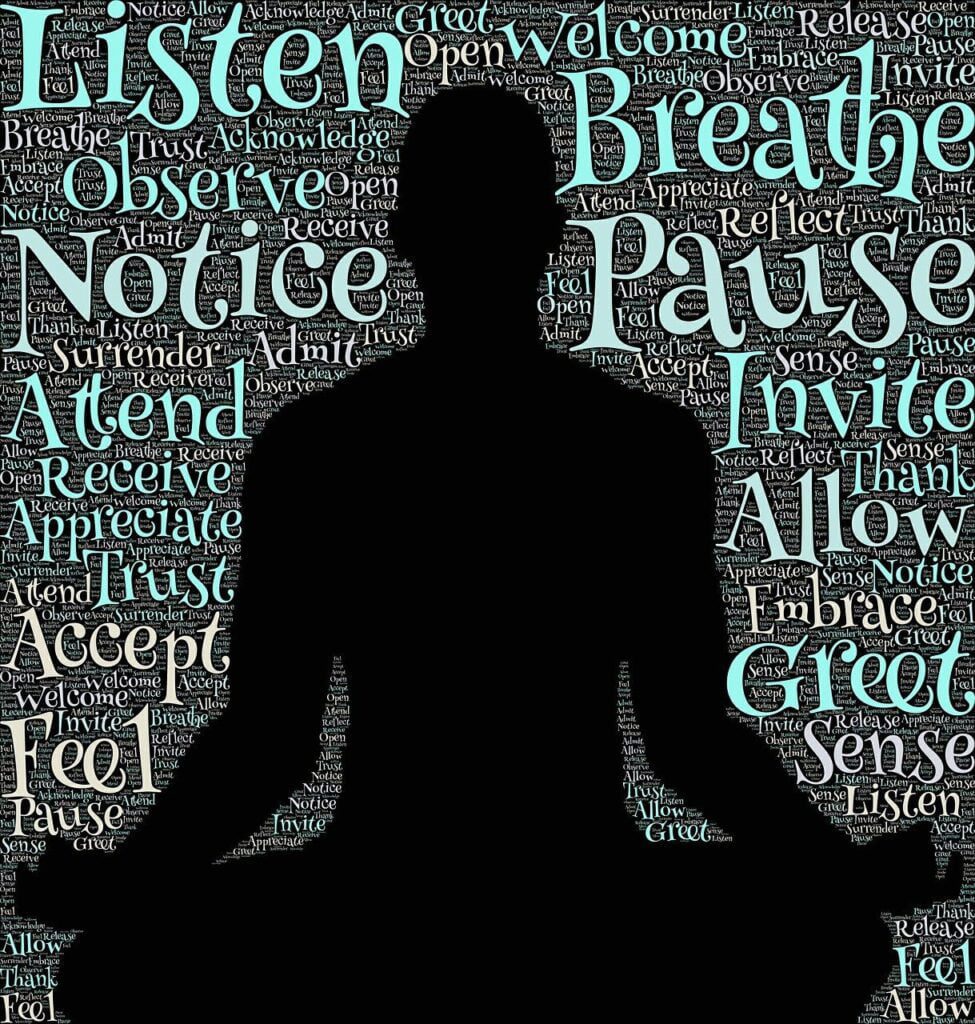Your personality can be the difference between a good pitch and a bad one. Whether you’re trying to get investors, employees, friends, or even dates, you want to present yourself in a way that gives people confidence and trust in you.
The problem with being shy is that it keeps you from doing the things you really want to do. So if you’re one of those people who struggle with social anxiety, fear of rejection, and shyness, it’s time to break this habit.
But how?
You can do it with an understanding of how shyness manifests and a little bit of practice. This article will show you how to overcome your shyness by making friends and talking to new people.
We’ve all been told that shy people are unlovable, but in actual fact, shy people have more friends, more money and more dates than the outgoing crowd. So, we decided to put this myth to the test.
Here are 7 Ways To Break The Habit Of Shyness

Create A Mindset That Builds Confidence And Breaks The Shackles
I have found that most of us have a deep need to be validated. If someone else has told you or shown you something you don’t already believe is true, you can’t help but feel better.
If someone believes you are successful and has given you affirmation, it makes it easier for you to believe yourself.
Everyone wants to be acknowledged. Sometimes, this can happen when you get praise or recognition. It can also happen when people compliment you or say something about you.
Either way, everyone likes to be recognized. A lot of people think that being recognized is the way to validate themselves. However, this isn’t always the case. Being acknowledged doesn’t mean that someone really knows you.
It only means that they acknowledge that you are So, how can you build confidence? You need to learn how to be more confident. When you are confident, you can face any challenge with ease.
When you are confident, you can do anything. This is true no matter how big or small the task is. You can’t do anything until you are confident. Being confident helps you to overcome obstacles and failures. You can’t do anything if you aren’t confident.
If you feel like you are lacking confidence, you may need to find a mentor to help you. You need to talk to someone who has had experience doing the same thing as you are planning on doing.
If you need help, you can also ask someone who has been successful in the same or similar area as you want to be successful in.
Practice self-awareness and awareness of others.
Self-awareness is a tricky thing to develop, but being aware of your own actions and motivations is critical to success.
We’ve all been in situations where we’ve behaved in a way we know was wrong, but we weren’t aware of why we were doing it. Self-awareness helps us recognize our own shortcomings.
A key part of self-awareness is learning to accept your own faults and shortcomings. The next level of self-awareness is recognizing that others have imperfections as well.
We can never assume that the motives of others are pure or that they are thinking about what is best for themselves.
When you are aware of your own shortcomings, you will be able to admit that you have made mistakes.
We are human and we will make mistakes. However, the key to a successful life is to be honest with yourself. No one can criticize you for that.
Self-awareness is a key ingredient in becoming a successful person. When we accept our shortcomings, we will find that we can achieve great things.
We need to learn how to control our emotions. This requires a lot of patience. When we get angry, we become more aggressive. We must learn to control our anger.
Another thing is that we need to accept others as they are. We should not be judgmental of others. People are not perfect. They are also not always right. We can never judge them. We can only love them and respect them.
Cultivate Empathy
People hate to lose. We’re taught to think in terms of self-interest. But there’s a difference between thinking about ourselves and thinking about others.
You can’t build empathy if you don’t care about other people. Instead, it’s more powerful to empathize with other people because then you’re able to connect with them. This is how you get someone to do something that’s hard for them to do.
There are many different kinds of people, and you can’t relate to all of them. Some people are friendly, while some people are not. You can’t expect everyone to like you.
So, you should try to relate to people who are good to you. Be nice to them and try to build a relationship with them. Also, you shouldn’t judge people by their appearance.
You should try to understand what they’re going through. If you can, you should be nice to them and help them out if you can. You can also be more confident if you start a conversation with someone.
Learn to be patient.
Many of us are impatient by nature. When we’re not satisfied with something, we tend to want it done yesterday. But when you’re building a business, it’s really important to be patient.
You want to wait until you’ve built up a big enough audience, until you’ve been in the market for a while, or until you’ve got a proven product before you start promoting it.
Patience is a virtue. People often don’t understand this. In fact, many people think that patience means they are weak and that they don’t have guts. But being patient is actually one of the most powerful traits you can have.
Sometimes, you will feel impatient and impatient, but you shouldn’t let that stop you from doing the right thing. Patience allows you to focus on the long term.
If you want to build a business, you have to put the long term first. You can’t rush into things or you will lose everything you’ve worked so hard for. The best way to create a business is to take your time.
Don’t get excited too soon. Wait until you have some results. You must be patient. Don’t let anything stand in the way of your success.
Understand how people think.
Once you understand how people think, you can tailor a message to reach them in the way they prefer to process information.
Most of us process information in two ways, according to psychology professor Scott Plous. We either read something, which is a passive way to take in information, or we take part in an active activity, such as solving a problem or completing a task.
The latter requires more brainpower and attention, because we need to actively engage in the activity. So if you’re trying to get someone to take action on an email or a phone call, you’ll want to use an active approach.
To get someone to take action, you have to understand the type of person he or she is. Are they a thinker or an actor? If they are a thinker, you need to provide him or her with as much information as possible so that he or she can analyze it.
This is a passive method of communication, because the person reading the message has to rely on you to present the right amount of information.
However, if the recipient is an actor, you can focus on the action. For example, if you’re trying to motivate someone to complete a task, you can get him or her to focus on the goal rather than the task itself.
Understand how people feel.
People aren’t rational beings. They don’t always make decisions in a logical fashion. Sometimes the choices they make seem to make no sense. This is called decision fatigue and people feel it when making choices.
Decision fatigue comes from feeling rushed, overworked, underprepared, and under-rested.
We all experience decision fatigue. In fact, most people feel that they are running behind schedule. When you feel like this, you might have to make quick decisions.
When you make quick decisions, you tend to make bad ones. So it is better to make good decisions instead of making quick decisions. We can avoid decision fatigue by taking a little time to think about the decisions we need to make.
We can also prepare for these decisions by gathering our resources and information ahead of time.
Understand What Makes People Tick.
As humans, we all have our unique needs. Some need to work alone, some need to be part of a group, some need to be social, and some need to be productive.
Knowing what makes people tick can help you to better understand who you are, what motivates you, and how to connect with your audience.
Everyone’s needs vary. There are solo workers and productive workers. Others prefer to be occupied.
What’s your motivation?
To answer this question, look inside.
Health, success, and happiness mean what to you?
Want to be with friends or alone?
Want to work or relax?
In summary, when it comes to breaking the habit of being shy, there are a few things you can do to overcome the fear of socializing. First, you need to remember that we’ve all been through it. So if someone asks you a question, you should be willing to answer it. Second, you need to practice talking to strangers. Finally, you need to try talking to people outside of your comfort zone. Remember, if you can’t ask, you can’t teach.




